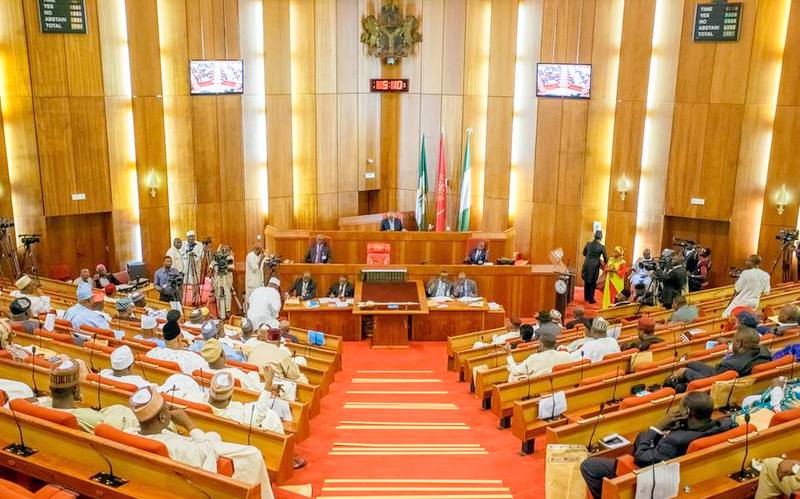
The Senate, on Tuesday, said the review of the 2020 budget passed by the National Assembly has become inevitable as a result of tumbling oil prices amidst the coronavirus outbreak.
The finance minister, Zainab Ahmad, recently expressed a similar view.
The Senate’s stance was sequel to the receipt and deliberation of the interim report of the Senate joint committee on finance, appropriations, national planning and petroleum resources (upstream).
The report comes one week after the Senate constituted the joint committee to engage relevant federal ministries on the recent oil price crash as well as the effect to Coronavirus on the nation’s economy.
The brent crude oil crashed by about 30 per cent last week, after the world’s top oil exporter, Saudi Arabia, began a global oil fight.
In December 2019, President Muhammadu Buhari signed a N10.50 trillion 2020 national budget. In the budget, Nigeria pegged oil production at 2.18 million barrels per day, with a price benchmark of $57 per barrel.
Since the crash, the price of brent crude hovers between $34 and $29 a barrel.
This has sent Nigeria into a revenue crisis. Giving the oil crisis, the government may not be able to finance the budget – having only about half of what it projected in revenue for 2020.
In the case of Nigeria that makes most of its foreign earnings from oil and produced its oil at about $30 per barrel, the price crash portends a potential recession for the economy, according to experts.
The report
Presenting the report, the chairman of the Senate Committee on Finance, Adeola Olamilekan, said the committee met with the Minister of Finance, Zainab Ahmed, and discussed a wide range of issues bordering on the current economic realities.
These include the cost of production of a barrel of crude oil compared with the other petroleum producing countries and the need to prioritise the social and the real sector of the economy, looking at their importance to the overall benefit of Nigeria.
The short term solution suggested by the committee is to address the sharp drop in the crude oil price which is creating difficulties in funding the 2020 Appropriation Act as passed by the National Assembly, he said.
While the long term solution discussed is the need to consider and pass the Petroleum Industry Bill (PIB), which is yet to be laid before the National Assembly. This, he said, will address the issue of the cost of production, gas flaring and other issues that might affect the petroleum sector.
On budget implementation, the lawmaker said, “the capital releases for the first quarter commenced by second week in March with the sum of N340 billion to be released to the critical sector of the Economy such as Transport, Agriculture, Works and Housing, Health and other Social and Real sector has commenced.”
The effects of the sharp drop in crude oil price will be felt with effect from May, June and July from our findings, he said.
The committee recommended that revenue-generating agencies must be alive to their responsibility in line with the Fiscal Responsibility Act passed by the National Assembly and other relevant laws of the National Assembly.


